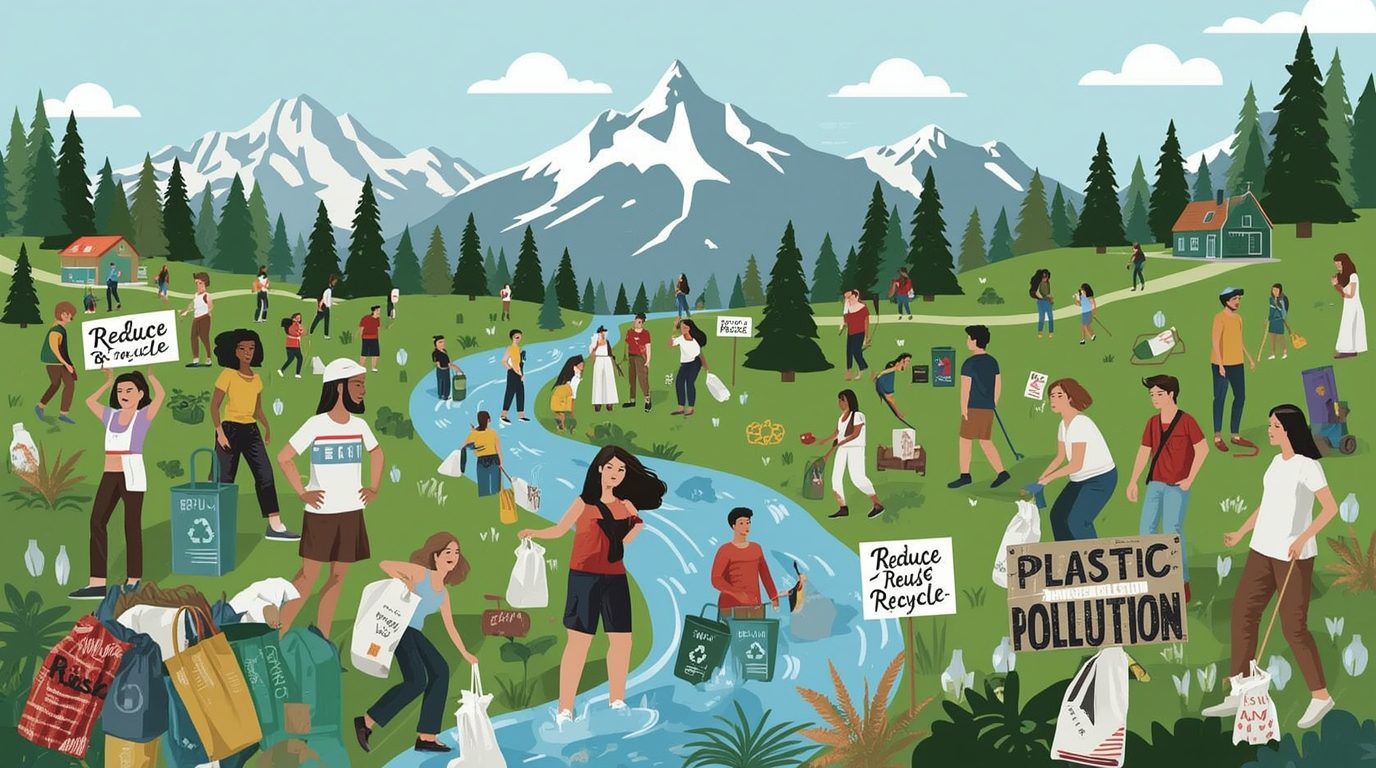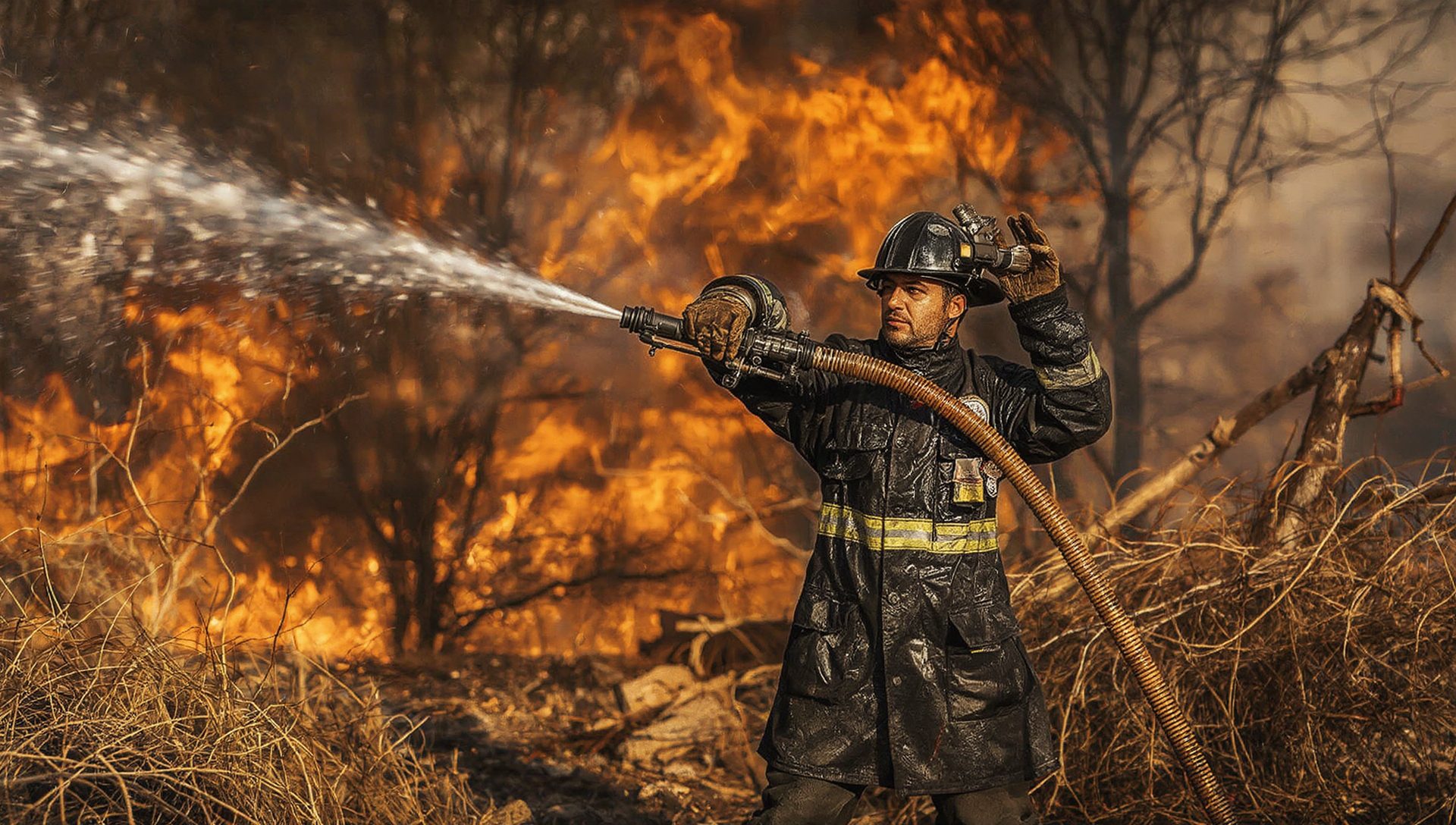Global Plastic Treaty Talks Fall Apart Due To Major Differences
Geneva, Switzerland – The attempts to resolve the world’s first ever treaty on plastic pollution, which is set out to be legally binding, have failed on Friday as countries remain stuck in debates on how to resolve the emerging crisis. Representatives from over 180 countries gathered at the United Nations office in Geneva for the important meeting, which was meant to conclude after 10 days of hard negotiation. Instead, the out of control negotiations ended with no resolution, which leaves the world without a unified strategy on one of the most important issues to emerge in the 21st century.
Standoff Caused By Production
A clear distinction was made between countries that advocate for stricter policies and those that wish to maintain the petrochemical status quo during the negotiations. Over 100 countries, which included both developed and emerging economies, stridently pushed for legally binding limits on production. A significant number of these countries also demanded action to ban toxic chemicals in the plastics, and pointed out the overwhelming harmful effects pose to humans and ecosystems.
Unlike other nations, significant oil and gas producers, particularly Saudi Arabia and Russia, were strongly opposed. They felt the treaty should focus more on the methods of recycling, reuse, and redesign and not limit production or phase out chemicals. For these nations, plastics form the bedrock of their economies and hold value during the transition from fossil fuel energy to renewables, making them resistant to policies that target production reduction.
The chair of the negotiating committee presented a draft treaty in the early hours of Friday. However, delegates could not reach a consensus to use it as a foundation for further discussions, resulting in the suspension of the treaty negotiations. The committee has stated that discussions will resume at some point, but when and in what format the ensuing meetings will be held is anyone’s guess.
International Reaction
“The conclusion of these discussions is concerning for environmental advocates. Sarah Baulch, a Senior Officer with the Pew Charitable Trusts, was quoted saying, “By failing to meet yet another deadline to tackle the growing plastic pollution issue, nations are endangering the well-being of people and the planet.”
Both Greenpeace and WWF responded in a similar manner. The global campaign head for Greenpeace, Graham Forbes, stated, “The vast majority of governments want a strong agreement, yet a handful of bad actors were allowed to use the process to drive such ambition into the ground.” WWF’s Erin Simon, who oversees waste and business affairs, described the outcome as “deeply disappointing” and remarked, “the crisis will continue unchecked while the world waits for the urgent action it so desperately needs.”
The Stakes of Inaction
The negotiations held in Geneva marked the sixth round of discussions aimed at developing a treaty that governs the entire lifecycle of plastics, including their production and disposal. In 2022, discussions to adopt a legally binding treaty commenced, aiming to create robust international frameworks for pollution control and the safeguarding of humanity and nature. The treaty was expected to be completed in South Korea later this year, but the disruption in Geneva, mostly on the issue of production caps, has put that timeline at risk.
Production of plastic has increased significantly over the years. Most recent numbers show that globally, plastic production sits at a staggering 460 million metric tons a year. In 2040, the production of plastic could rise by 70% if stronger policies are not applied, as the OECD predicts. However, the plastic recycling rate sits at an all time low of under 10% which is ‘recycled’. The rest is stored in landfills, incinerators, or it pollutes the rivers and oceans cutting off the food chain for marine life. It also is ingestible to marine life which is extremely harmful.
Microplastics and Human Health
Microplastics, which are created as a byproduct of plastic degrading, are defined as the smaller than 5 millimeters in size. Microplastics have become rampant. Their particles can be found in the air, and more surprisingly, drinking water and food. It can even be found as ‘deposits’ in human organs. Microplastics and chemicals that are associated with it have been scientifically linked to a wide range of human health complications. The list includes obesity, heart disease, asthma, reproductive disorders, and cancer. The long term developmental harms also range from the womb to old age.
A Climate Crisis As Well
Plastics are a leading contributor to the world’s pollution problems. According to the International Energy Agency, the lifecycle emissions of plastics could account for up to 15% of the global carbon budget by 2050. Their production drastically relies on fossil fuels. Plastic manufacturing undergoes multiple stages of greenhouse gas emissions, like manufacturing, shipping, and eventual disposal. Aside from their massive ecological footprint, plastics also greatly endanger human health.
The Case for Production Caps
The argument from proponents of production caps is that recycling and managing the end-of-life activity are not enough. Over the past few decades, the rate of plastic recycling stagnated. As countries work to push for production caps, prominently known as the “source reduction” approach, they emphasize the need to curb the flow of new plastic streams from the very beginning to safeguard the environment, human beings, and health.
“Without addressing the exponential increases in plastics consumption, microplastics contaminating every corner of the planet.” said a senior negotiator from a European delegation.
The Petrochemical Perspective
The benefits in medicine, food packaging, construction, and technology are defended by petrochemical producing nations and companies, highlighting the economic significance of plastics. For these stakeholders, a treaty that limits production is softened by one that focuses on end-of-use management as this preserves industry functionality and attempts to practice circular economy principles.
Mensink Marco of the International Council of Chemical Associations said, “Manufacturers remain committed to supporting a treaty that keeps plastics in the economy and out of the environment by advancing a circular economy—designing products for reuse and recycling, collecting them at end of life, and remaking them into new products.”
Health, Environment, and Global Equity
The lack of agreement is just as troubling for inequity as it is for the environment. Countries that are low to mid-income are the most impacted by the pollution and without access to waste management mean inadequate infrastructure. Public and environmental health are at great risk and the burden of these impacts is shouldered by the most vulnerable groups within society.
Research also indicates that harmful additives found in plastics, including phthalates, bisphenols, and flame retardants, pose long-term risks like hormonal imbalances and developmental disorders. Additionally, microplastics are increasingly found in food, drinking water, and even within the human body, demonstrating the extent of the issue on a global scale.
Scientific Consensus and Urgency
The need for action is dire and the global scientific community has made this clear. The United Nations Environment Programme (UNEP) has issued a dire warning, foreseeing that plastic pollution may surpass the world’s waste management capabilities within the next twenty years. If no action is taken, water bodies and land will become a dumpsite for plastics, jeopardizing wildlife, fisheries, tourism, and human health.
Looking Ahead
While the talks in Geneva did not produce a treaty, it is anticipated that negotiations will restart at a later date. Analysts warn that agreement on a final text will be particularly difficult because of disputes over production restrictions, chemical bans, and enforcement systems.
Environmental advocates emphasize that innovating recycling processes and developing biodegradable and sustainable materials won’t address the problem of plastic production unless there is a significant reduction in the overall production of plastic. Additionally, overcoming fossil fuel lobbying requires strong global leadership in the enforcement of legal and scientific borders.
Conclusion
The fall of the Geneva talks indicates the difficulty in resolving the global crisis of plastics due to the many facets it intersects, including environmental, health, economic, and geopolitical issues. While some countries push for bold, legally binding policies, others advocate for the preservation of industries and slow incremental changes.
The world is in dire need of a coordinated response as the increase in plastic production and the environmental crisis worsens. The absence of agreement reached in talks puts ecosystems, human health, and climate stability at risk. This highlights the need for a global treaty that is resolvable and enforceable.
Stay updated with reliable news:
Sports: Sport Flash HQ
Business: Biz Rush
Weather: The Climate Post
Travel: Neon Report
US Local: 24 Hour Bulletin
India Finance: The Lucky Ledger
General: The Chrono Post




